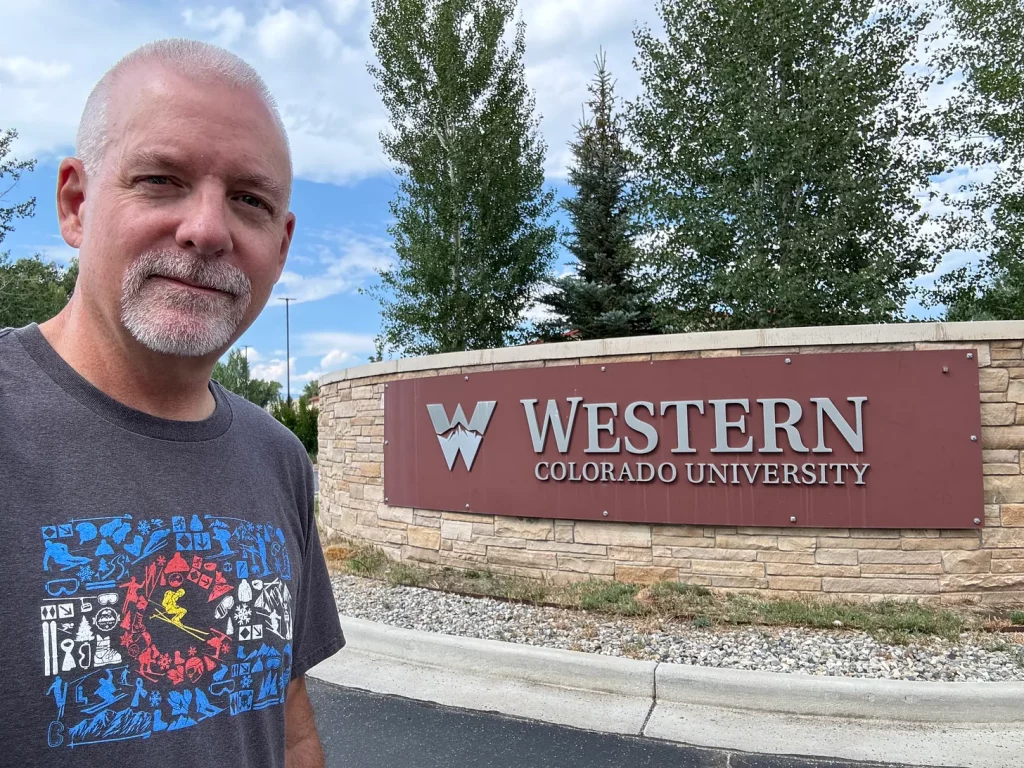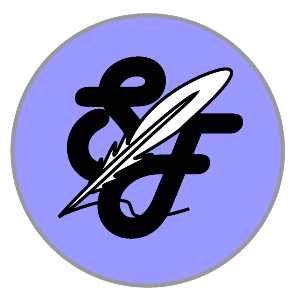I recently started a newsletter, MFAdventure, that documents my pursuit of a master’s degree in creative writing. Because the Speculative Fiction Writers Association is a group of creative writers, I thought you might be interested in reading about my experience so far. You can subscribe to my newsletter for free at www.stricklandia.com.
I’m going back to school. And I’m closer to retirement than to the beginning of my career. So the obvious and inevitable question is, “Why?”
Starting With Why (and What)

But before why, let’s talk about what. This summer, I started a graduate program in creative writing at Western Colorado University, with the goal of earning a Master of Fine Arts degree. Western’s focus differs from most other MFA programs in that it specializes in “genre fiction”—science fiction, fantasy, horror, romance, mystery, among others—where my reading and writing interests also lie. The program is “low residency,” which means most of the learning happens online, with a weeklong residency each summer at the university’s campus in Gunnison, Colorado. This hybrid approach is especially convenient for people like me with families, day jobs, and other commitments.
As for why (or why now), when I’m well into the back half of my career? That stage of my career is actually a big part of the reason. Whenever I do decide to retire, one of the most important concerns besides retirement savings is how to spend all that free time. I don’t golf, or fly-fish, or tinker on cars, or do any of the common hobbies that could occupy my free time on a daily basis. But I do enjoy writing, and that’s indeed something I can do till the day I die.
First Summer Term
The degree program kicked off in June with two summer classes: The Common Read & Writing Craft and Fundamentals of Writing Genre Fiction. The coursework involved both live classes on Zoom and asynchronous online work, and culminated in a weeklong, in-person residency at Western’s campus in Gunnison, Colorado.
- Common Read: Provides incoming students with an introduction to Western’s creative writing community and to the contemporary state of creative writing.
- Writing Genre Fiction: Covers proper manuscript format, understanding of basic principles of fiction, the Monomyth, archetypal characters, and voice. Students complete a short story and critique each other’s work in a group setting.
Some of the texts we read are worthwhile books for any writer’s library:
- The Practice: Shipping Creative Work, by Seth Godin
- Save the Cat Writes a Novel: The Last Book on Novel Writing You’ll Ever Need, by Jessica Brody
- Story Genius: How to Use Brain Science to Go Beyond Outlining and Write a Riveting Novel (Before You Waste Three Years Writing 327 Pages That Go Nowhere), by Lisa Cron
- Understanding Show, Don’t Tell (And Really Getting It), by Janice Hardy
Residency Week
At the end of July, the in-person residency brought together students and faculty from all five concentrations of Western’s creative writing program: Genre Fiction, Publishing, Screenwriting, Poetry, and Nature Writing. Besides finishing off the summer term with classes all week, the residency also featured reading events, craft talks, social gatherings, book launches, and a graduation ceremony for those finishing their degrees.
It was an exciting week—especially the chance to meet the other twelve members of my incoming cohort in person (one of whom came from as far away as Denmark), after meeting and working with them virtually for much of the summer.
What’s Next?
In the coming academic year, we’ll jump in the deep end of genre fiction, studying Romance, Mystery, and Thrillers in the fall semester, and Horror, Westerns, and Speculative Fiction in the spring semester. The course work includes reading a dozen novels and writing two short stories each semester.
There are many pros and cons to graduate school in general, and a creative writing MFA in particular, and I’ve considered them all in recent months—cost vs. value, goals I hope to achieve and how this program might help me reach them, what I can do with the degree, and much more. I wrote about this decision-making process in my newsletter, and I continue to share my thoughts about the program as it progresses. Whether you’re wondering if an MFA program is a good investment, or you’re just curious about what the experience is like, I invite you along for the ride at www.stricklandia.com.
Michael Strickland is a graduate of the School of Cinematic Arts at the University of Southern California and is currently pursuing an MFA in Creative Writing at Western Colorado University. His fiction has appeared in Cast of Wonders, Cosmic Daffodil, Punk Noir, Lit Shark, the anthologies Programmed Hearts and Green Eggs and Horror, and elsewhere. He daylights as a user experience (UX) writer.

